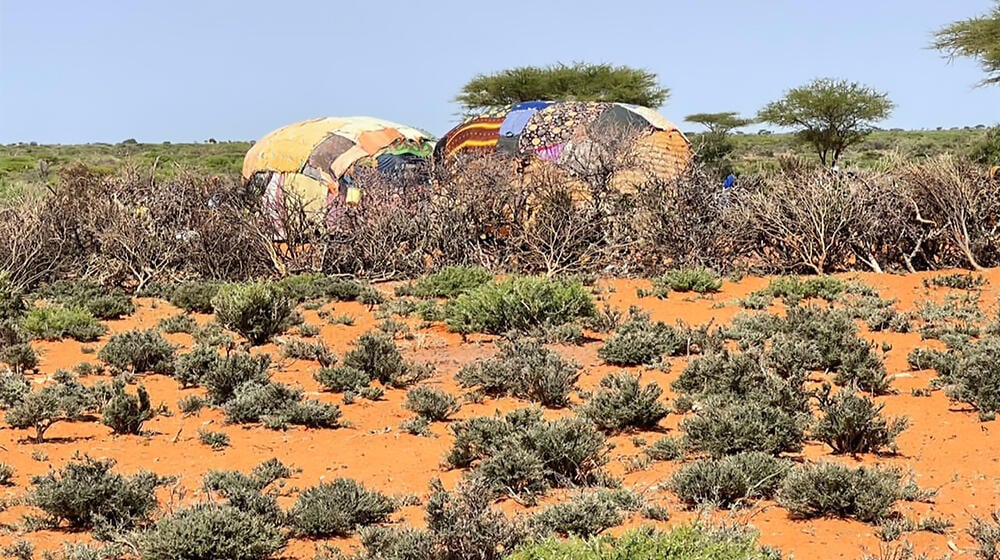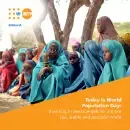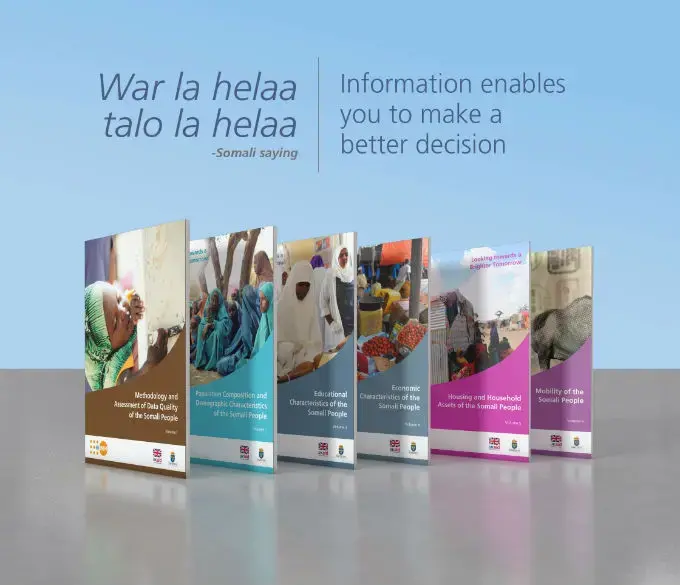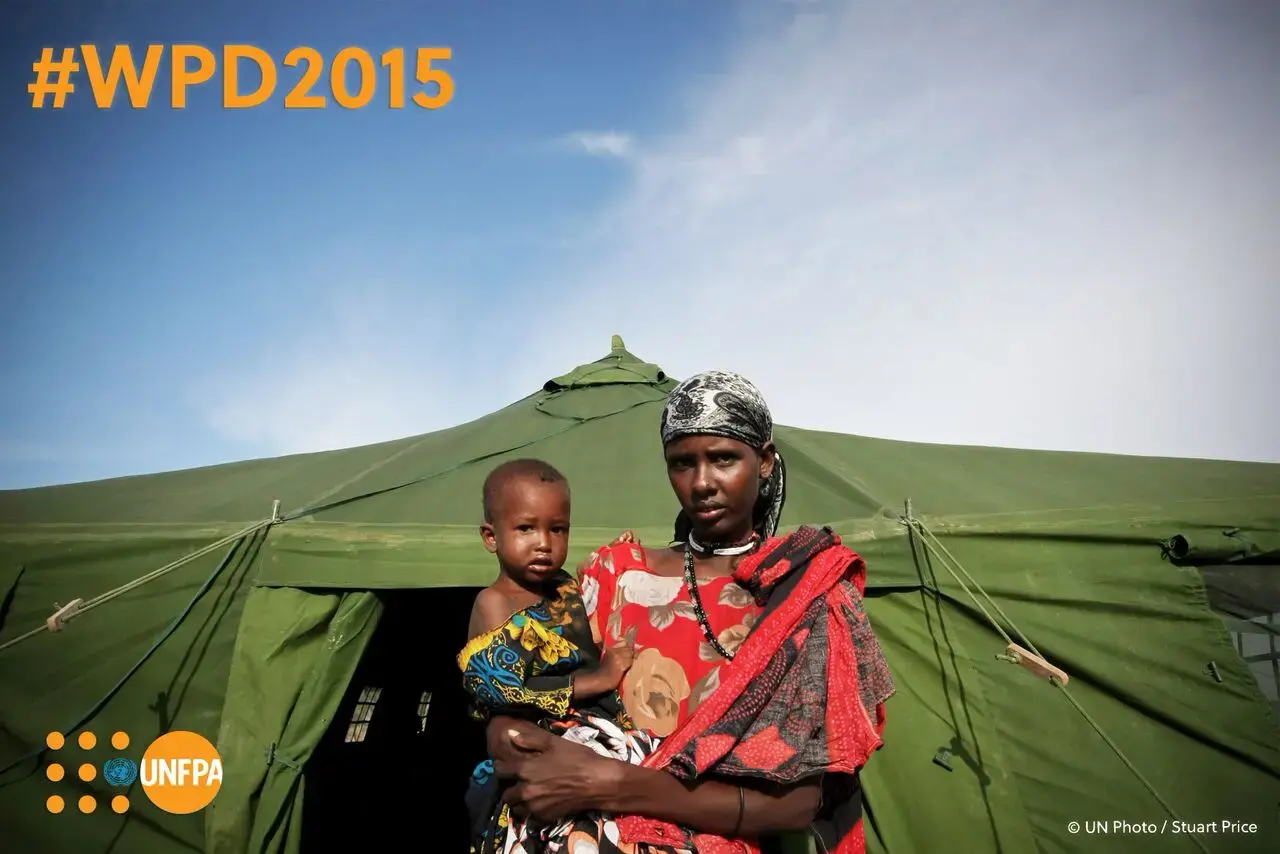Climate change has drastically impacted the livelihoods of Somalia’s nomadic population, which constitutes a significant portion of the country. As part of this year’s World Population Day commemoration, we interviewed Abdi (not his real name) to gain insights into what it’s like to be born into a nomadic family and to understand both his early experiences and recent challenges.
Abdi reflects on his upbringing in the early 1990s. His family roamed between the warm coastal areas during the dry winter season and highland areas above the Golis Mountain of Ogo in the summer wet season in the Sahil and Marodijeh regions of Somaliland.
My family were pure pastoralists who owned goats and sheep, mainly between 200 to 400 herds in different times, with two or three camels used for transport. The livelihood was entirely dependent on herding livestock,” he said.
Livestock played a central role in their lives. They consumed meat and milk, and the sale of livestock provided essential resources such as food and clothing. Their movements were guided primarily by the availability of water and pasture, moving without a fixed pattern.
However, the climate has since changed. Previously predictable rainfall patterns—two distinct rainy seasons each year— have become increasingly erratic. Abdi explains:
“Pastoralists normally relied on two rainy seasons observed each year in Somaliland: the spring with much rainfall between April and June and the autumn with less rainfall between September and November. Therefore, the amount and frequency of rainfall throughout the year were predictable.”
Yet, in recent years, prolonged droughts disrupted this predictability. He goes on to describe the impact:
“Since 2010, the nomadic way of life has come under threat due to various factors that include consecutive drought, environmental degradation, and livestock depletion caused by climate change. Rainfall has become increasingly unpredictable, with changes in timing, frequency, and the amount of rain. Drought patterns over the years have changed while prolonged drought seasons with very little and no rain became common, leading to a shortage of water and pasture with large-scale loss of livestock. This recurring nature of climatic disasters has made it difficult to recover from the loss.”
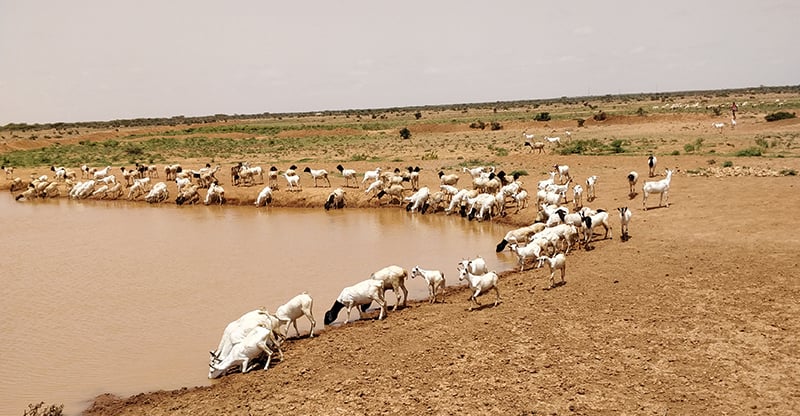
While climate change affects people unequally, leaving the world’s most vulnerable in challenging situations, the consistent failure of expected rain caused severe droughts, sparing no one. People, livestock, and crops all suffered, and water sources dried up. Between the years 2016 and 2017, Somaliland faced one of its most severe droughts due to consecutive failed rainy seasons. The drought was named Sima; meaning “equal” in the Somali language because it affected everyone equally hard.
Nowadays, with no hope of recovery and solutions for nomadic families, Abdi shares:
My family had no option but to seek an alternative livelihood. Accordingly, I started arranging permanent housing and a new life setting for them in urban areas to support their transition. They moved to Hargeisa in November 2019, and they are still living there.”
In this rapidly changing world, Somalia’s most vulnerable nomadic families grapple with the harsh realities of climate-induced hardships. Therefore, it is crucial for the government and its partners to develop sustainable, climate-resilient approaches which are evidence-based and data-driven to address these emerging population challenges. UNFPA is working closely with government partners to understand nomadic movements, their changing lifestyles and develop new approaches for their enumeration to ensure they are not left behind.

